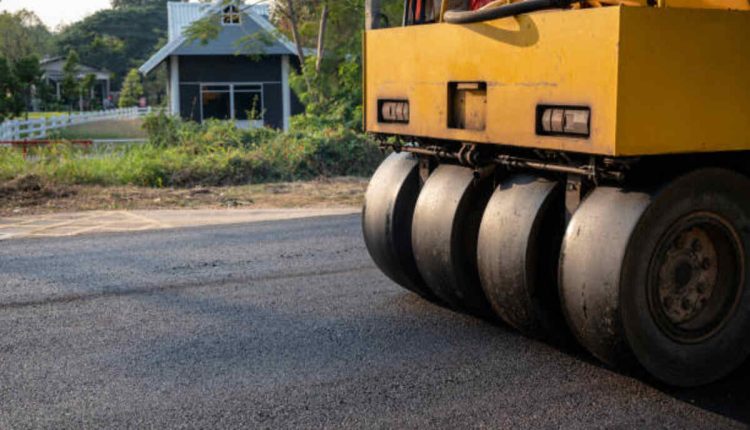Asphalt paving requires special machinery in order to produce an even surface. Such machines include cold planers, milling machines, sweepers, and dump trucks. The best guide to finding Hometown Asphalt Paving of Corpus Christi.
Dump trucks deliver large loads of asphalt materials directly to paving sites, using either end dump or live bottom models. Material Transfer Vehicles (MTVs) may also be employed to reduce truck waiting time at the paving site while mitigating aggregate segregation issues.
Milling Machine
When asphalt pavement becomes damaged with cracks and rutting, professional contractors employ cold milling machines to extract damaged surface layers quickly and cost-effectively compared to traditional patching methods.
An asphalt milling machine, commonly referred to as a cold planer, consists of a rotating drum equipped with rows of carbide cutters that grind and cut through existing asphalt surface layers systematically and methodically. Additionally, its exterior features scrolls of tool holders or road milling teeth, which securely fasten these carbide cutters in place – the number of cutting teeth directly affects how smoothly a milling machine performs its task.
Some asphalt milling machines feature tracks instead of wheels, which allows them to work on uneven terrain with greater precision and control. These milling machines often feature screens or conveyors equipped with screens or conveyors to separate and classify crushed asphalt before transporting it directly to a dump truck or storage area for disposal – with any excess asphalt being saved and reused on other paving projects as recycled asphalt pavement (RAP).
Grader
Asphalt paving materials are widely utilized, as they adapt well to changes in traffic volume and usage patterns. To appreciate what went into building new roads or parking lots, one must understand their construction underneath the surface.
Land grading is the cornerstone of successful paving. Proper land grading ensures that the base layer is solid, thick, and evenly compacted to provide reliable support to asphalt layers, producing the longest-lasting results possible.
Once the paver base has adequately been laid, you can add the surface asphalt layer. This typically comprises small aggregate, oil, and sand combined into one mixture that can then be compacted using a roller truck to form an attractive yet strong driving or walking surface.
Paving equipment must be regularly maintained in order for it to function at its optimal levels, including clearing away asphalt buildup, lubricating moving parts, and inspecting crawler tracks and hydraulic systems of pavers. Furthermore, safety must be ensured by providing workers with personal protective gear such as hard hats, unique protective gloves, long-sleeved shirts, and work pants.
Sweeper
Related Posts
Asphalt pavement is among the most durable paving materials. It can withstand heavy traffic and weathering without cracking as quickly, and also absorbs sound – which makes it suitable for highway use in order to decrease noise pollution.
An asphalt paving project’s success depends on the quality and consistency of its mixture, made up of aggregates, fillers, and bitumen (a petroleum byproduct). All these ingredients are combined at an asphalt plant to ensure consistency during mixing.
Additives may be added during the mixing process to enhance pavement performance or other characteristics, with asphalt stored in heated storage silos until it can be delivered directly to its final destination.
Asphalt pavements are then placed and compacted using specialized machinery explicitly tailored for each job, depending on factors like mix design, temperature, climate, and other variables. This equipment aims to deliver uniform results across each task – this is particularly crucial in colder climates where temperature variations may change the viscosity of the mixture and impair how effectively it holds together aggregates.
Dump Truck
Asphalt paving material is an economical, long-term, and versatile paving choice, suitable for roads, parking lots, and other surfaces. It can be tailored and colored for different aesthetics, while its weather resistance makes it ideal for outdoor use. Furthermore, asphalt is much quieter than concrete as its porous structure absorbs noise, resulting in more comfortable journeys.
Asphalt production involves heating a combination of aggregates and bitumen to a high temperature in an asphalt mixing plant, where aggregates such as crushed rock, sand, gravel, or slag may be combined with bitumen to form an asphaltic binder which holds together all these ingredients. Bitumen is typically made of petroleum-derived byproducts b, but there may also be bio-based options.
Once the asphalt mix is ready, it is loaded into dump trucks for transport to its construction site. At its destination, specialized paving equipment spreads and compacts it before covering it in a seal coat for added protection from further damage.
Paver
Asphalt is a mixture of aggregates, binders, and fillers used in the construction and repair of roadways, parking areas, railway tracks, bicycle lanes, sidewalks, and other surfaces. Bitumen binder has traditionally been the predominant binding component; however, new developments include using demolition byproducts as a more sustainable and recyclable option to create asphalt mixes.
Ingredients are combined and heated to over 300 degrees until they become liquid, enabling even distribution over the prepared surface. Once applied, heavy rollers compact it further to eliminate voids and ensure structural integrity.
Asphalt pavement offers attractive, economical, durable, and low-maintenance paving options for homes and businesses alike. Asphalt is not only environmentally friendly and recyclable but can also be combined with other paving materials. What’s more, its skid-resistance makes driving safer while reducing accident risks; plus, water drains through rather than collecting in puddles to benefit both sewer systems and the environment – not to mention becoming an asphalt paver only requires an elementary school diploma or GED certificate or vocational school/apprenticeship training programs to become asphalt pavers!
Read also: What to anticipate in a Good Estate Agent


